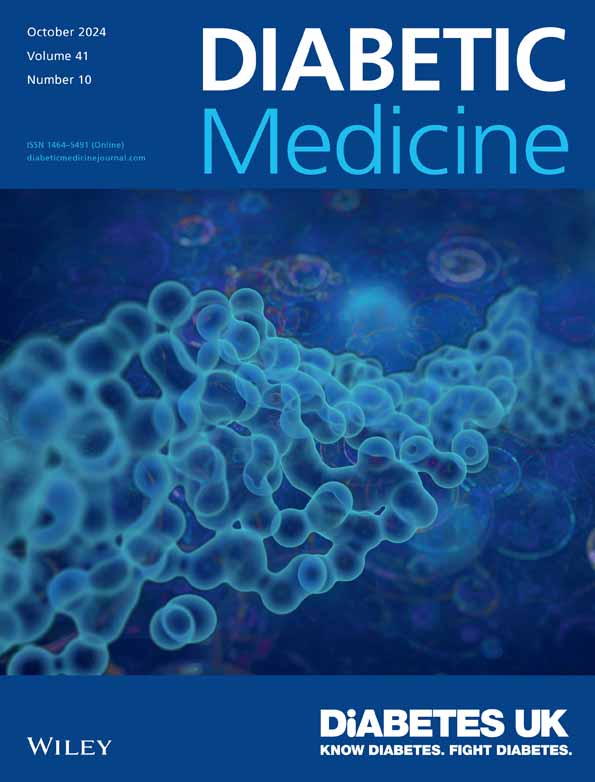Barriers and system improvements for physical activity promotion after gestational diabetes: A qualitative exploration of the views of healthcare professionals
Abstract
Aim
Physical activity is an important behaviour for managing the ten times increased risk of type 2 diabetes after gestational diabetes. Previous studies exploring physical activity promotion in healthcare focus on general practitioners but have not explored the gestational diabetes pathway. Therefore, this paper explores the barriers to and suggestions for, activity promotion along the gestational diabetes healthcare pathway.
Methods
The paper was written in accordance with the Standards for Reporting Qualitative Research. Patient and Public Involvement with women who had lived experiences of gestational diabetes informed purposeful sampling by identifying which healthcare professional roles should be targeted in participant recruitment. Participants were recruited through word-of-mouth, that is, email and connections with local healthcare service leads. Twelve participants took part in semi-structured one-to-one interviews, analysed using reflexive thematic analysis.
Results
Participants included a Public Health Midwife (n = 1), Diabetes Midwifes (n = 3), Diabetes Dietitian (n = 1), Diabetes Consultants (n = 2), Diabetes Specialist Nurse (n = 1), general practitioners (n = 2), Practice nurse (n = 1) and a Dietitian from the UK National Diabetes Prevention Program (n = 1). Six themes were generated: ‘management of gestational diabetes takes precedent’, ‘poor continuity of care’, ‘lack of capacity to promote PA’, ‘beliefs about the acceptability of PA promotion’, ‘resources to support conversations about PA’ and ‘adapting healthcare services for women post-gestational diabetes’.
Conclusions
During pregnancy messaging around physical activity is consistent, yet this is specific for managing gestational diabetes and is not followed through postnatally. Improvements in continuity of care are necessary, in addition to ensuring the availability and links with wider exercise and activity schemes.


 求助内容:
求助内容: 应助结果提醒方式:
应助结果提醒方式:


